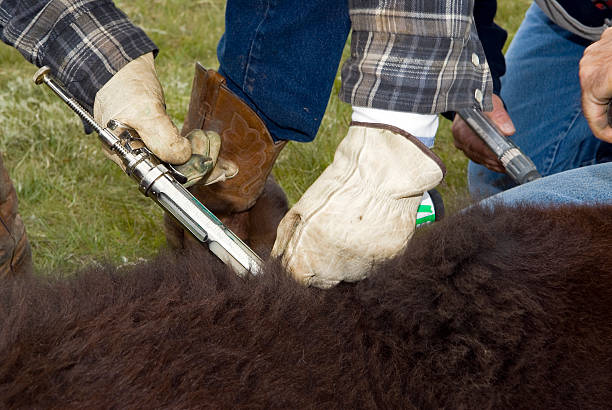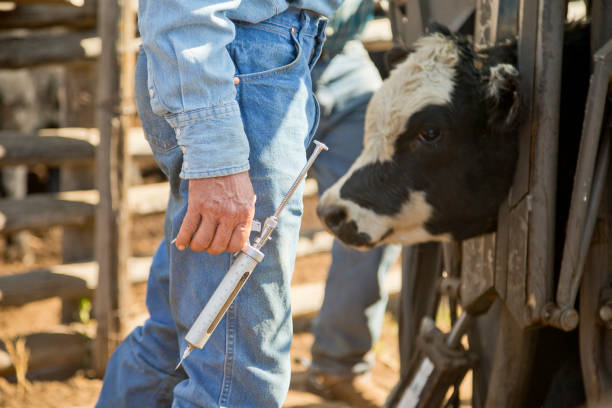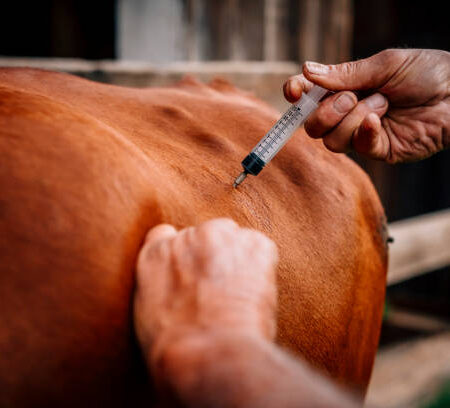Kenyans Opposes Nationwide Livestock Vaccination Plan Amid Controversy.
President William Ruto is facing criticism from government critics over the proposed national livestock vaccination program, which aims to eliminate harmful traces in dairy and meat products for export. While the initiative has been defended by the Ministry of Agriculture and Livestock Development, some farmers are resisting the plan, citing their existing vaccination practices and questioning the necessity of the program at this time.
The Kenya Veterinary Association (KVA) has raised strong objections to the government’s proposed livestock vaccination program, set to begin in January 2025. The association claims that it was not consulted during the program’s development and is calling for greater transparency regarding the diseases targeted, the rationale behind the vaccination, and the identities of the sponsors.
Government’s Position on the Vaccination Drive
The Ministry of Agriculture and Livestock Development has emphasized the importance of this initiative in ensuring that Kenya’s livestock sector meets international standards. The vaccination program targets 22 million cattle for foot and mouth disease (FMD) and 50 million sheep and goats for Pest Des Petites Ruminants (PPR) disease. The government argues that this national campaign is essential to safeguard the country’s livestock industry from global isolation, particularly in light of increasing international scrutiny over food safety.
Farmers’ Concerns and Political Backlash
Despite the government’s assurances, many farmers are unconvinced. Some argue that they already vaccinate their animals against common diseases and question the necessity of the new initiative. There is also growing political tension surrounding the vaccination program, with some critics suggesting that it may have hidden foreign agendas. President Ruto has dismissed these concerns, labeling those opposed to the vaccination of animals as “mad and unreasonable.”
Cost and Financial Implications for Farmers
The vaccination program is expected to cost 2.2 billion Shillings to vaccinate 22 million cattle against FMD and approximately 3.95 billion Shillings in total for both cattle and small ruminants. The government has stated that it will bear the cost of the vaccines upfront, with farmers required to repay the government through credit arrangements when they sell their animals. However, concerns remain about the practicality of this repayment system, particularly for farmers without direct access to markets or processing plants like the Kenya Co-operative Creameries (KCC).
Varying Vaccine Costs and Transparency Issues
Farmers and veterinary professionals have reported discrepancies in vaccine costs, with some vaccines reaching up to 200 Shillings per dose by the time they reach farmers. While some farmers regularly vaccinate their animals against diseases such as FMD, anthrax, and Rift Valley fever, they question whether the new vaccination drive is targeting regions that have not been reached by existing programs or if it is a blanket initiative.

Environmental Concerns and the Role of Vaccination
Amid the growing controversy, some farmers like John Taso and Richard K have raised concerns about the transparency of the vaccination process, with claims circulating that the campaign is a covert attempt to control methane gas emissions from livestock. Experts, however, suggest that vaccination alone is not a solution to environmental issues. Methods like using efficient feeds and fermenting feed outside the rumen can also help reduce methane production.
Next Steps and Public Health Implications
As the debate continues, farmers remain focused on their daily tasks, especially during the festive season when many animals will be slaughtered for meat. The government’s vaccination drive is seen as an essential step to ensure the safety of these animals for local human consumption, but the full rollout of the initiative will be closely watched by both farmers and the public for its effectiveness and transparency.
KVA officials argue that several critical details surrounding the program remain unclear, including its duration, the specific diseases it will address, and the funding sources. According to Dr. Kelvin Oor, the association’s chairperson, the program has sparked significant public controversy, and the KVA’s input was only sought after the public raised concerns. He emphasized that consultations should have occurred from the outset, rather than being an afterthought.
One of the key criticisms from the KVA is the claim that some of the diseases identified for vaccination are localized, not warranting a nationwide vaccination campaign. For instance, they argue that Foot and Mouth Disease (FMD), which the government aims to target, is not a major issue in some regions and should only be addressed in areas where it is endemic. The KVA asserts that this approach would avoid unnecessary resource expenditure.
In addition, the KVA has expressed skepticism regarding claims that the vaccination program would help control greenhouse gas emissions in cattle, noting that the technology to achieve such goals is still in its early stages. The association questions whether the government possesses the capacity to implement such technology effectively.
The KVA is calling for the government to suspend the program and instead focus on addressing other urgent issues affecting the livestock sector. They also stress the importance of engaging with the public respectfully, listening to their concerns, and providing clear, transparent explanations about the benefits of the vaccination campaign.
The government plans to vaccinate approximately 22 million cattle, alongside 50 million goats, sheep, and other small livestock, in the upcoming year. The KVA’s opposition highlights the ongoing debate over the best approach to livestock health and vaccination in Kenya.



Comments